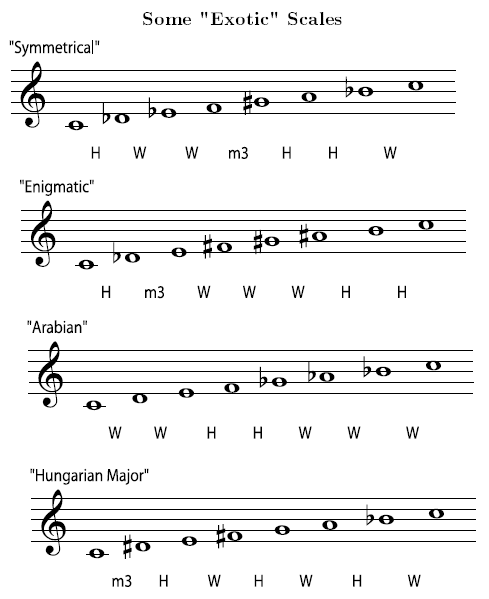There are many other possible scales that are not part of the major-minor system; these are sometimes called "exotic" scales, since they are outside the usual Western system. Some, like pentatonic and octatonic scales, have fewer or more notes per octave, but many have seven tones, just as a major scale does. Some, like the whole tone scale, are invented by composers exploring new ideas. Others, which may be given appellations such as "Persian" or "Hungarian" by the person using or studying them, are loosely based on the music of other cultures. These scales are sometimes borrowed from music that is actually modal, but then they are used in Western classical, jazz or "world" music simply as unusual scales. Since they usually ignore the tuning, melodic forms, and other aesthetic principles of the traditions that they are borrowed from, these "exotic" scales should not be considered accurate representations of those traditions.
If you want to compose or improvise music, you can experiment with making up new scales, unusual combinations of notes to be used in your music. Or you can look up some of the many "exotic" scales already in use. (Try a web search for "exotic scales".) Here are just a few examples of the many possibilities. Listen to the "symmetrical" scale, "enigmatic" scale, "Arabian" Scale, and "Hungarian Major" Scale.

- 7838 reads






